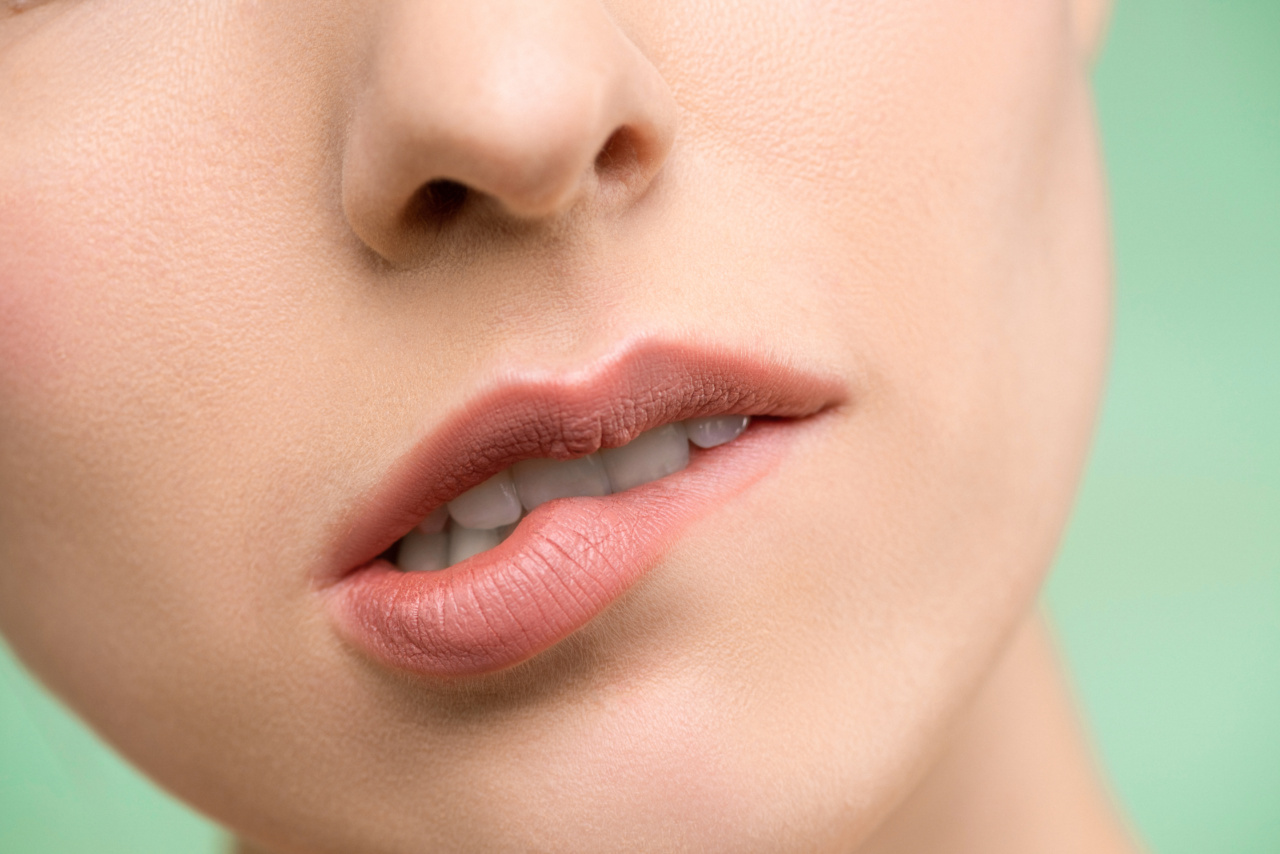Our teeth play a vital role in our daily lives, allowing us to bite, chew, and speak effectively. Maintaining good dental health is essential for overall wellbeing.
However, certain habits or conditions can negatively impact our teeth, leading to various oral health problems. One such habit is compulsive biting, also known as bruxism or excessive grinding and clenching of the teeth. It is a common but often overlooked issue that can result in significant damage to the teeth and surrounding structures.
Understanding Compulsive Biting
Compulsive biting refers to the involuntary habit of grinding, gnashing, or clenching the teeth, typically during sleep or subconsciously. It is estimated that bruxism affects approximately 8-10% of adults and up to 15% of children worldwide.
This condition can occur both during the day (awake bruxism) and during sleep (sleep bruxism).
Potential Causes of Compulsive Biting
The exact cause of compulsive biting is still not fully understood. However, several factors may contribute to the development of this habit:.
- Stress and Anxiety: Psychological factors, such as stress, anxiety, or tension, are often associated with bruxism. People may unconsciously clench their teeth as a way to cope with stress or to release pent-up emotions.
- Malocclusion: A misalignment or abnormal bite, also known as malocclusion, can put excessive pressure on certain teeth, leading to bruxism.
- Sleep Disorders: Sleep apnea, snoring, or other sleep-related breathing disorders may increase the likelihood of sleep bruxism. The body’s attempt to open the airway during sleep may result in grinding or clenching of the teeth.
- Medication and Substances: Certain medications, such as antidepressants, stimulants, or recreational drugs, can cause teeth grinding as a side effect.
- Genetics: There may be a genetic predisposition to bruxism, as it often runs in families.
Identifying Symptoms of Compulsive Biting
Recognizing the signs and symptoms of compulsive biting is crucial for timely intervention. Some common indications of bruxism include:.
- Teeth Grinding: A grinding sound often heard during sleep is a prominent sign of bruxism. However, many individuals with sleep bruxism are unaware of this habit and may require the help of a partner or family member to identify it.
- Worn or Flat Teeth: Over time, compulsive biting can cause tooth enamel to wear down, resulting in flat or sensitive teeth. Dental professionals can spot these signs during routine check-ups.
- Jaw Pain and Headaches: Frequent jaw pain, headaches (especially upon waking), or facial muscle soreness may indicate excessive teeth grinding.
- Temporomandibular Joint (TMJ) Disorders: Extended periods of bruxism can contribute to TMJ disorders, causing jaw clicking, limited jaw movement, or even lockjaw.
- Tooth Sensitivity: Compulsive biting can lead to enamel erosion, making teeth more sensitive to hot or cold foods and beverages.
The Effect of Compulsive Biting on Dental Health
The repetitive grinding and clenching motion exerted on teeth during bruxism can have various consequences:.
- Tooth Fractures and Cracks: The excessive force produced during bruxism can lead to fractures or cracks in the teeth.
- Loose Teeth: Prolonged grinding can cause the ligaments and supporting structures around the teeth to weaken, resulting in tooth mobility.
- Gum Recession and Sensitivity: Bruxism may cause the gums to recede, exposing the tooth roots and increasing sensitivity.
- Tooth Wear and Shortening: The continuous grinding can wear down the enamel, leading to shorter and misshapen teeth.
- Occlusal Trauma: Compulsive biting puts excessive pressure on the temporomandibular joints, potentially causing joint inflammation and discomfort.
Treatment Options for Compulsive Biting
Effective management and treatment of bruxism focus on addressing the underlying cause and preventing further damage. Some treatment approaches include:.
- Dental Night Guard: A custom-made dental night guard, also known as an occlusal splint or bite guard, can be worn during sleep to protect teeth from grinding against each other.
- Stress Management Techniques: Learning stress reduction techniques, such as meditation, counseling, or exercise, can help reduce bruxism triggered by stress and anxiety.
- Orthodontic Treatment: Correcting malocclusion or bite abnormalities through orthodontic treatments, such as braces or clear aligners, can alleviate bruxism symptoms.
- Medication: In certain cases, medications, such as muscle relaxants or Botox injections, may be prescribed to relax the jaw muscles and reduce grinding.
- Sleep Apnea Management: Treating underlying sleep disorders, such as sleep apnea, can also help alleviate sleep bruxism.
Preventing Compulsive Biting
While it may not always be possible to prevent bruxism entirely, certain lifestyle modifications and preventive strategies can minimize its impact:.
- Avoid Stimulants: Reduce or avoid the consumption of caffeine, alcohol, and recreational drugs, as they may exacerbate teeth grinding.
- Relaxation Techniques: Engaging in relaxation exercises, such as yoga or deep breathing, can help reduce stress levels and prevent bruxism triggered by stress.
- Oral Habits: Avoid habits such as chewing on pens, pencils, or other non-food objects, as they can contribute to teeth grinding.
- Good Sleep Hygiene: Establish a regular sleep routine and create a comfortable sleep environment to promote better sleep quality and reduce the likelihood of sleep bruxism.
- Dental Check-ups: Regular dental visits allow professionals to monitor the condition of teeth and identify early signs of bruxism or dental damage.
Conclusion
Compulsive biting, or bruxism, can be a harmful habit that significantly impacts oral health.
Understanding the potential causes, recognizing the symptoms, and seeking appropriate treatment are essential steps toward managing and preventing further damage. By adopting preventive measures and maintaining proper dental care, individuals can minimize the dental consequences associated with this compulsive biting habit.
It is crucial to consult a dental professional for an accurate diagnosis and personalized treatment plan to safeguard the health and longevity of one’s teeth.
























